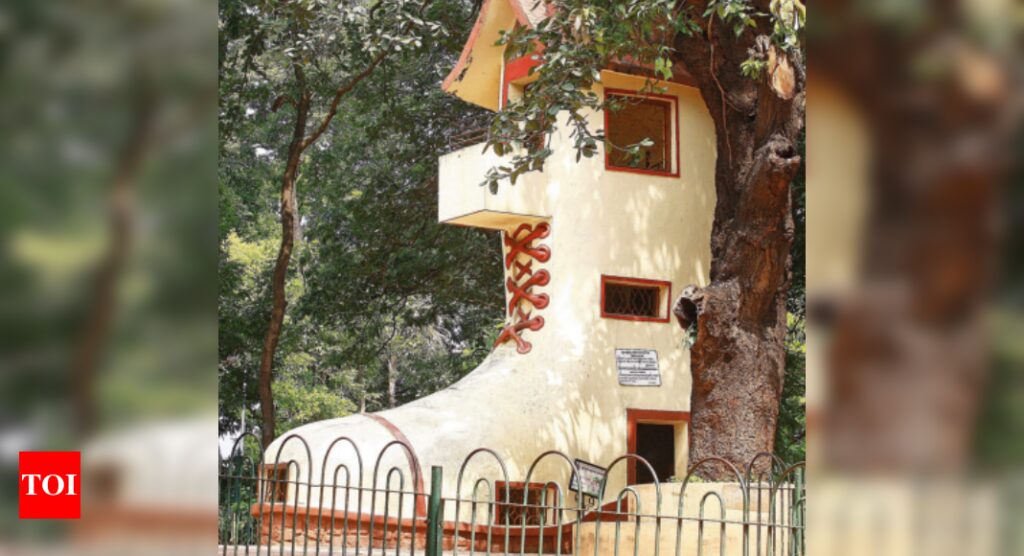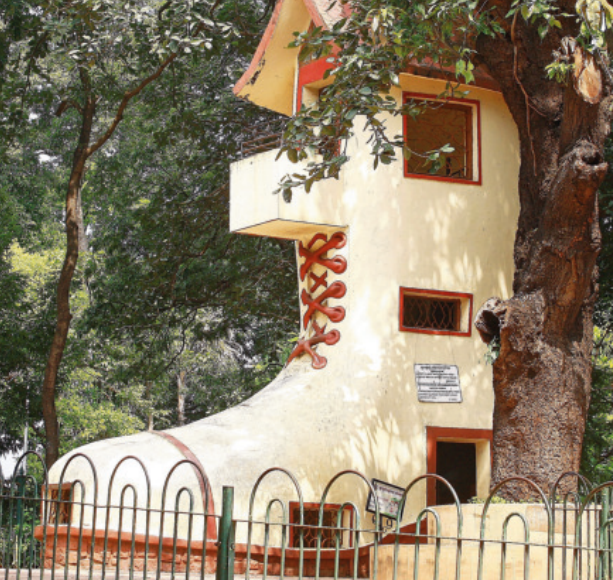[ad_1]
MUMBAI: The famed Hanging Gardens of Mumbai, a 136-year-old landmark, may well be the next casualty of infrastructure development in the city. A plan to reconstruct a colonial-era reservoir under the terraced garden on Malabar Hill will keep it out of bounds in a phase-wise manner for up to seven years.
“The plan is to demolish and reconstruct the reservoir over a period of seven years,” said additional municipal commissioner (projects) P Velrasu. Officials added that the entire landscaped area would need to be taken apart in addition to cutting down and transplanting about 350 trees on an adjoining plot.
Reacting to protests by residents, Mumbai guardian minister and local MLA MP Lodha has called for a public meeting on the issue on Tuesday. Located at one of the highest points in the city, the reservoir is designed to supply water through force of gravity to most parts of SoBo. Lodha said, “If there are alternatives they can be explored. But then instead of using gravity to provide supply to all of south Mumbai, water may have to be pumped up here,” said Lodha.
The Rs 698-crore plan to demolish the Hanging Gardens and rebuild the gigantic tank under it has been in the works since a structural audit exposed its precarious state. The 2017 audit showed the roof of the reservoir—on which sits the garden—and columns supporting it were weak.
Additional municipal commissioner P Velrasu, who is in charge of the civic hydraulic department, said the condition of the tank, which can currently hold 147 million litres, is such that the BMC cannot risk part-demolition. The reservoir comprises five chambers and has a surface area of approximately 22,000 sq metres. “Collapse of the roof and the supporting columns is a real threat. Water supply to the whole of south Mumbai will be affected,” he said.
The BMC’s standing committee had cleared the proposal to increase its capacity to 191 million litres back in 2022. Corporators backed the project as south Mumbai’s estimated 3 million population is far above what the reservoir was originally built to handle. With skyscrapers increasingly dotting its skyline, supply capacity needs to be augmented for the poshest areas of the city to avert water cuts.
But now with notices for cutting down and transplanting trees being posted in the vicinity of the garden, residents of this leafy enclave are beginning to realise the larger implications. Of the total 389 trees on the chopping block, 189 would have to be cut while 200 would have to be transplanted. Many of these are old, native trees of mango, jackfruit, coconut, chikoo and amla.
“The plan is to demolish and reconstruct the reservoir over a period of seven years,” said additional municipal commissioner (projects) P Velrasu. Officials added that the entire landscaped area would need to be taken apart in addition to cutting down and transplanting about 350 trees on an adjoining plot.
Reacting to protests by residents, Mumbai guardian minister and local MLA MP Lodha has called for a public meeting on the issue on Tuesday. Located at one of the highest points in the city, the reservoir is designed to supply water through force of gravity to most parts of SoBo. Lodha said, “If there are alternatives they can be explored. But then instead of using gravity to provide supply to all of south Mumbai, water may have to be pumped up here,” said Lodha.
The Rs 698-crore plan to demolish the Hanging Gardens and rebuild the gigantic tank under it has been in the works since a structural audit exposed its precarious state. The 2017 audit showed the roof of the reservoir—on which sits the garden—and columns supporting it were weak.
Additional municipal commissioner P Velrasu, who is in charge of the civic hydraulic department, said the condition of the tank, which can currently hold 147 million litres, is such that the BMC cannot risk part-demolition. The reservoir comprises five chambers and has a surface area of approximately 22,000 sq metres. “Collapse of the roof and the supporting columns is a real threat. Water supply to the whole of south Mumbai will be affected,” he said.
The BMC’s standing committee had cleared the proposal to increase its capacity to 191 million litres back in 2022. Corporators backed the project as south Mumbai’s estimated 3 million population is far above what the reservoir was originally built to handle. With skyscrapers increasingly dotting its skyline, supply capacity needs to be augmented for the poshest areas of the city to avert water cuts.
But now with notices for cutting down and transplanting trees being posted in the vicinity of the garden, residents of this leafy enclave are beginning to realise the larger implications. Of the total 389 trees on the chopping block, 189 would have to be cut while 200 would have to be transplanted. Many of these are old, native trees of mango, jackfruit, coconut, chikoo and amla.
[ad_2]
Source link











More Stories
We can’t wait to face India in the final: Pat Cummins | Cricket News
Railways plans 3,000 additional trains in next 4-5 years to minimise number of waitlisted tickets | India News
Faridabad: Man dies after ‘falling from hotel room window’ while partying with friends